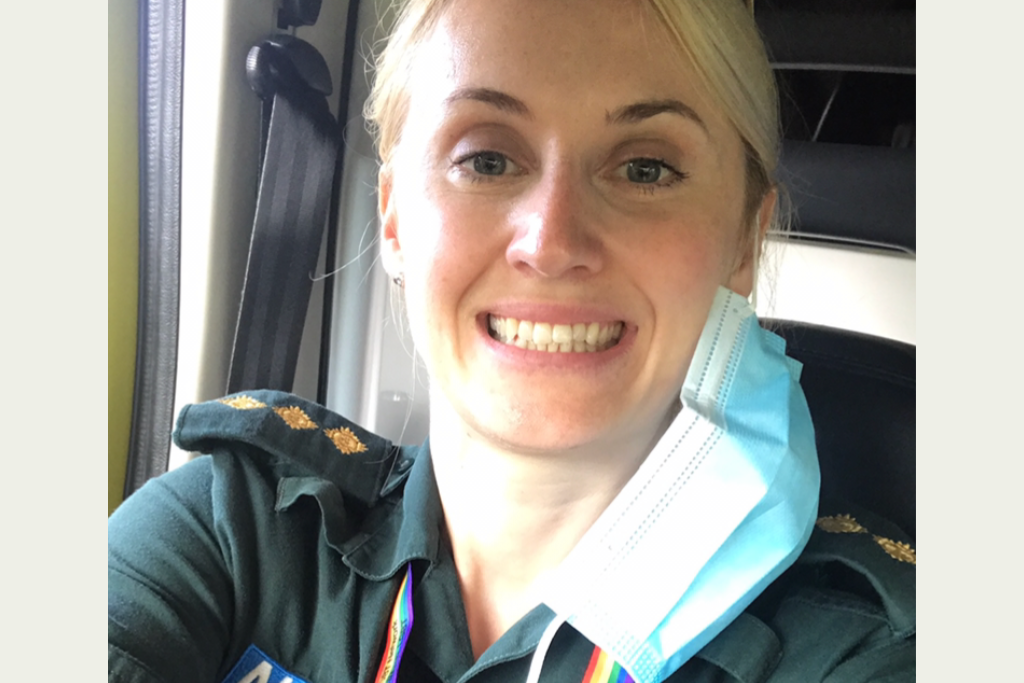
Sarah Scullion joined the North West Ambulance Service (NWAS) family in 2013 after a career change. Sarah went from responding on the frontline as a police community support officer to responding as a paramedic. She told us, “Following five years in GMP, I decided to enrol in a paramedic course out of curiosity really. As it turned out, I really enjoyed the content. I jumped ship and left my career in the police.”
When Sarah first joined us, she was already ‘out’, yet at first, she felt anxious about discussing her sexuality with her colleagues. Sarah said, “I was ‘out’ when I joined the ambulance service but I don’t think I mentioned it unless I was directly asked. I didn’t feel it was relevant but probably more honestly, I was a little nervous as to how it would be received. I think I was talking freely and openly about my social life after a couple of months”.
Over the last 10 years, Sarah has seen a change in the ambulance culture. She explained, “In my first few years as a student paramedic I overheard a manager using homophobic abusive language in an open office, I didn’t feel that I could challenge him at the time. I’m really disappointed that as a student I couldn’t find my voice to stand up for what is right. However, this one early incident has been outweighed by countless positive interactions. In fact, I struggle to think of a time when my sexuality has been relevant in the workplace these days.”
Since that early incident a decade ago, Sarah has seen a shift in the culture at NWAS but despite this, she believes there is more that can be done. She explains, “I think the culture of NWAS and society, in general, is changing. There is a new generation of managers coming up with a much more open and people-focused approach. I would describe NWAS as inclusive and supportive, however, there is always more that can be done. I think we can improve staff representation, by hiring people who reflect our communities. Our BAME representation isn’t where it needs to be. In the same vein, I think we can do better at having management that reflects our frontline staff. For example, we need to level up the number of females in management. Only by interacting with different races, sexualities and all types of people, can we truly be diverse, learn from each other and be inclusive.”